Preserved Commercial Vehicles On PSV Chassis
Preserved Commercial Vehicles On PSV Chassis
Peter and I have been considering in recent months how best to deal with those strange beasts mentioned towards the back of the PSVC list of preserved buses. There is a section, among the miniatures, trams and others, of "Preserved Commercial Vehicles On PSV Chassis". In the 2012 listing it begins on page 224. It is, however, somewhat erratic, in that some vehicles listed there have been given new bodies since they were withdrawn from normal 'public' operation, while others of that sort appear in the main body of the list. I have omitted vehicles which were buses and coaches but have been cut down since withdrawal for use as trainers, tree loppers, and racing car transporters, as most of them appear in the main list. I have concentrated instead on those which were built for non-psv use, but on psv chassis. Most are fire brigade vehicles. Should they be under 'any other thing' or elsewhere on the site? We have agreed the best thing is to produce a 'gallery'. Here goes!
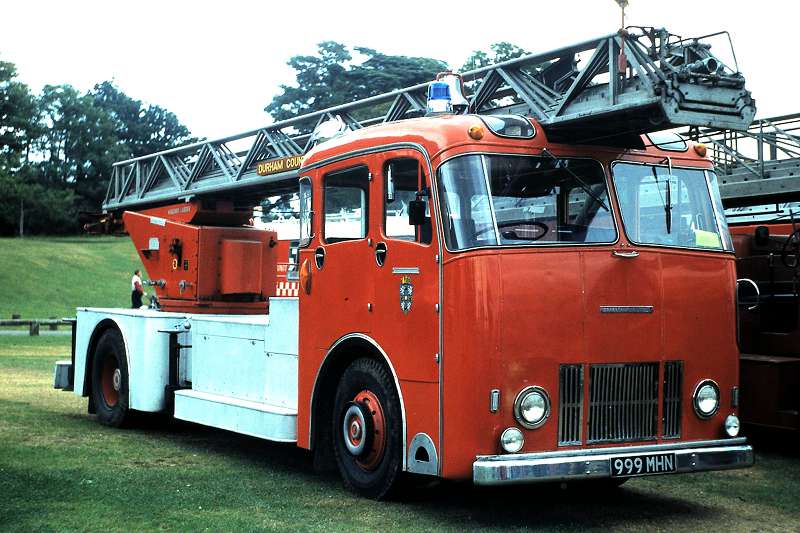
Durham County Fire Brigade
County Durham was not the only one to use 999 as the numbers for its emergency vehicles, although it must have placed fairly severe restrictions on how many were bought at once! This vehicle is marked as being a Leyland Firemaster. I thought for many years that it was a modified Tiger Cub, but Wikipedia says that the Firemaster is actually a Royal Tiger Worldmaster with certain modifications. They include a wheelbase of 12ft 6in, with the radiator on the nearside, just ahead of the rear axle. The unique selling point - not that many were sold - was the water pump at the extreme front end, which enabled the machine to face the fire rather than being side-on. It seems that only Glasgow and Manchester showed any real interest in the device, which was taken out of the catalogue in 1962/3. We see this example in a rally at Netley, on 22 August 1993. She isn't in the 2012 listing.
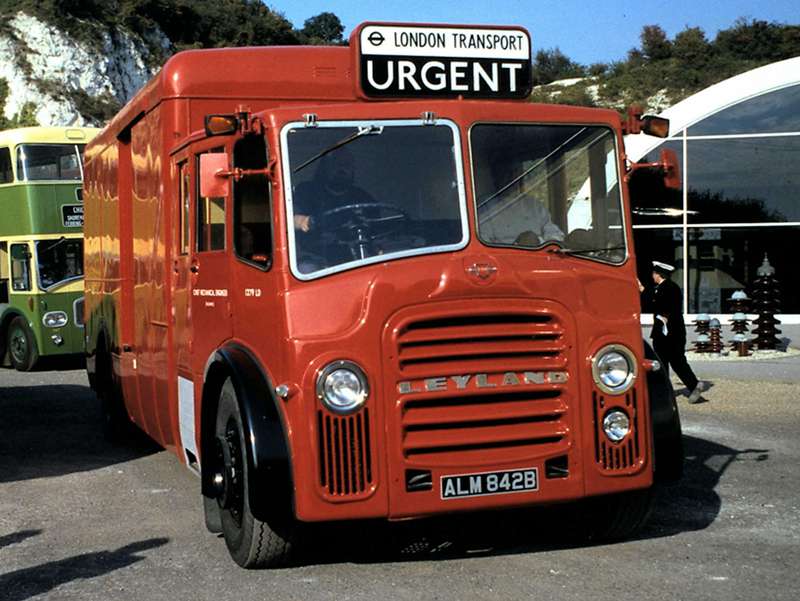
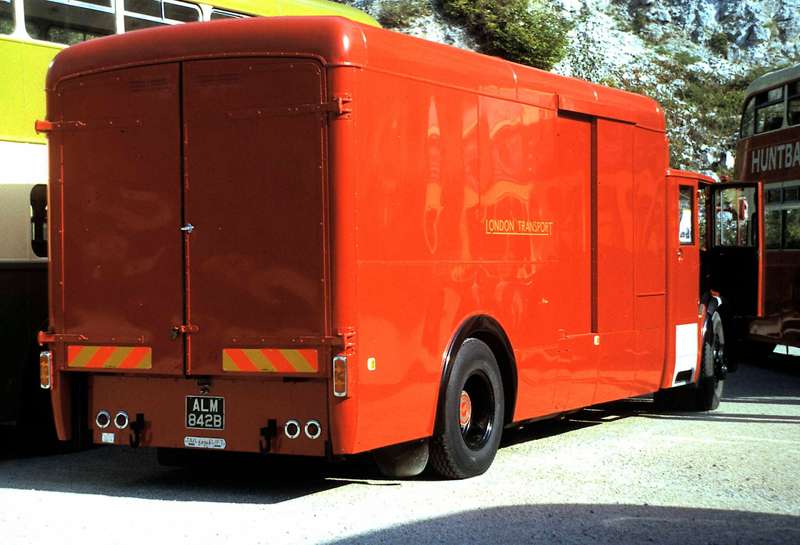
London Transport
ALM 842B may not look like a Leyland Titan PD3A/1, but that is what she is. She was built in 1964 with a Mann Egerton body for use as an emergency tender. I suppose that the converted STL fleet, with Chalmers bodies, were getting rather outdated, and something more modern was required. In 1964, then, why not a version of the then 'standard', the RM? She's seen at Amberley on 21 September 1997.
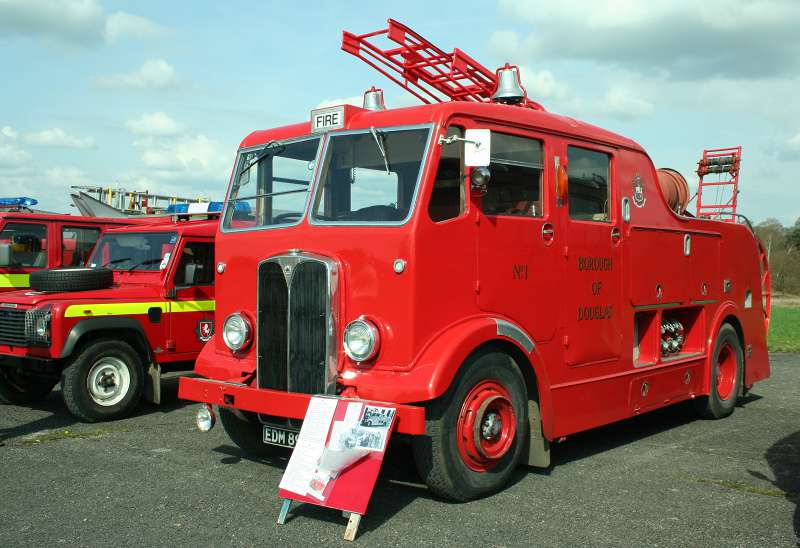
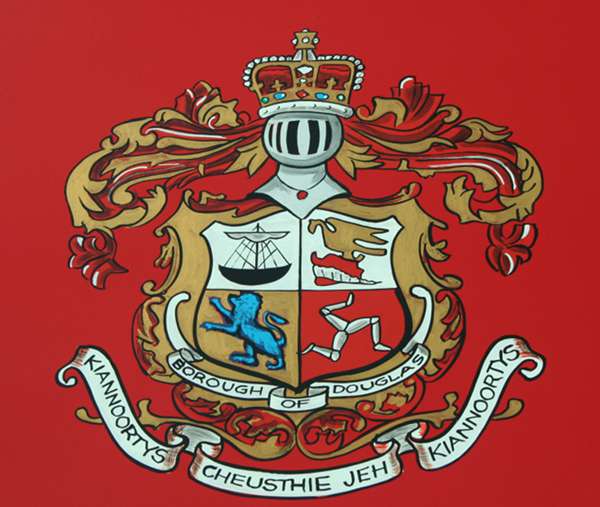
Douglas Fire Brigade
EDM 893J is the UK registration for this fire engine, which was built for the Borough Of Douglas, Isle If Man, in 1951. She is a Maudslay Regent III with Park Royal bodywork. Her original registration was NMN 50 - see below! - and we see her at Wisley on 5 April 2009.
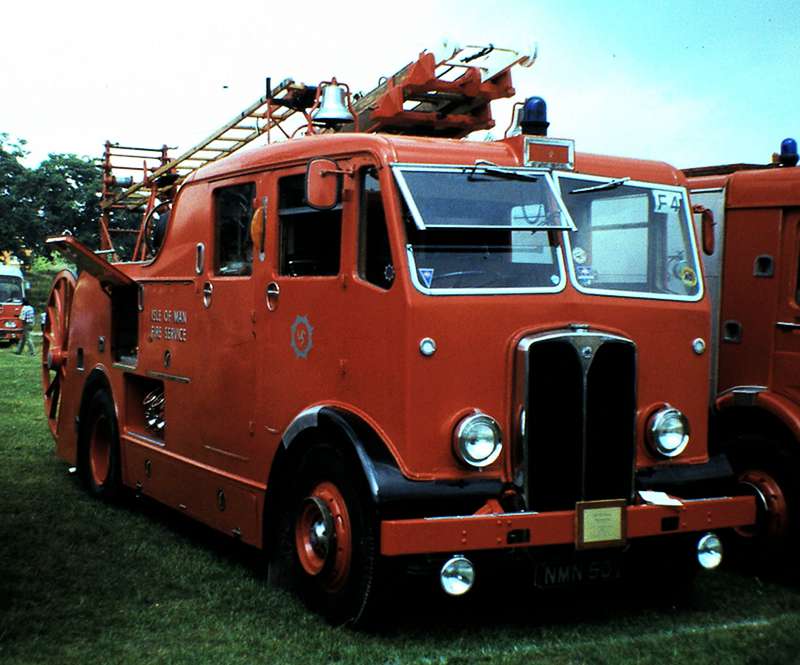
Isle Of Man fire Brigade
NMN 50 is a Maudslay Regent III and is in fact EDM 893J, with her original registration but with "Nationalised" markings rather than the Borough Of Douglas ones seen above. In this guise, we see her at Netley on 13 July 1986.
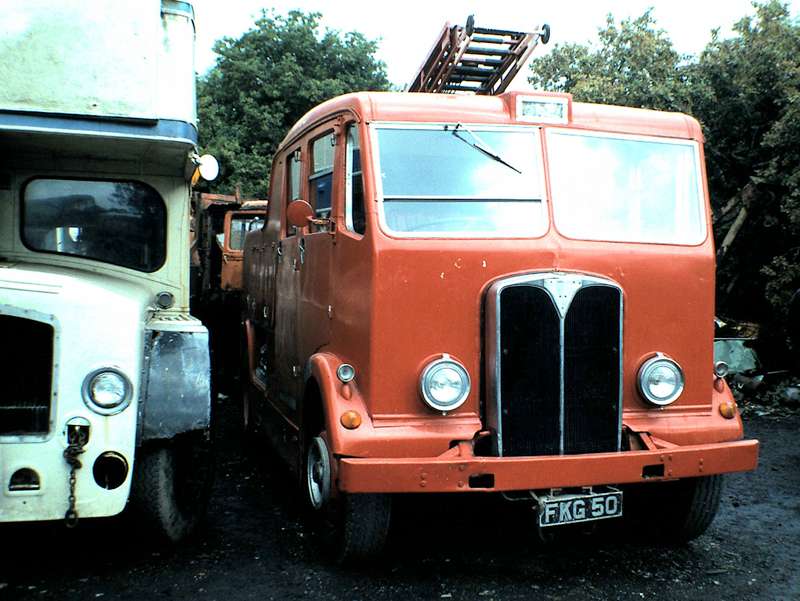
Cardiff Fire Brigade
FKG 50 is another Maudslay Regent III, built in 1950 for Cardiff Fire Brigade. We see her at Winkleigh on 1 October 1995.
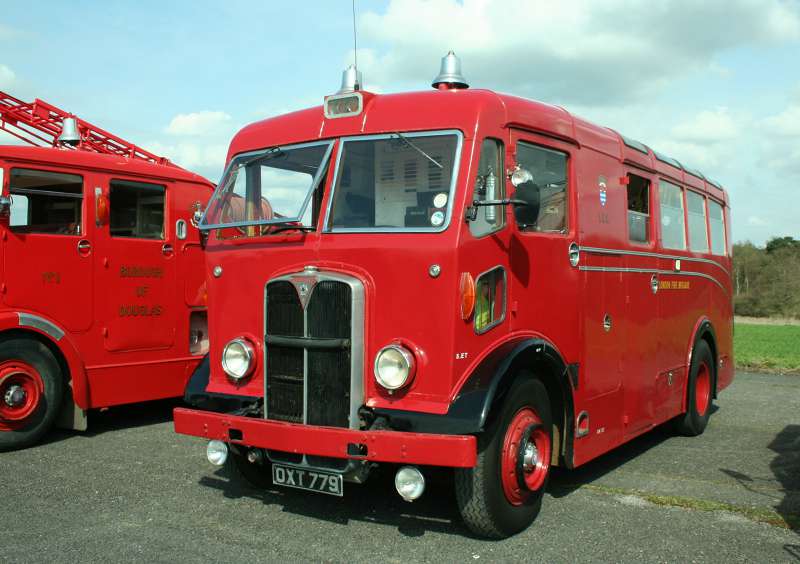
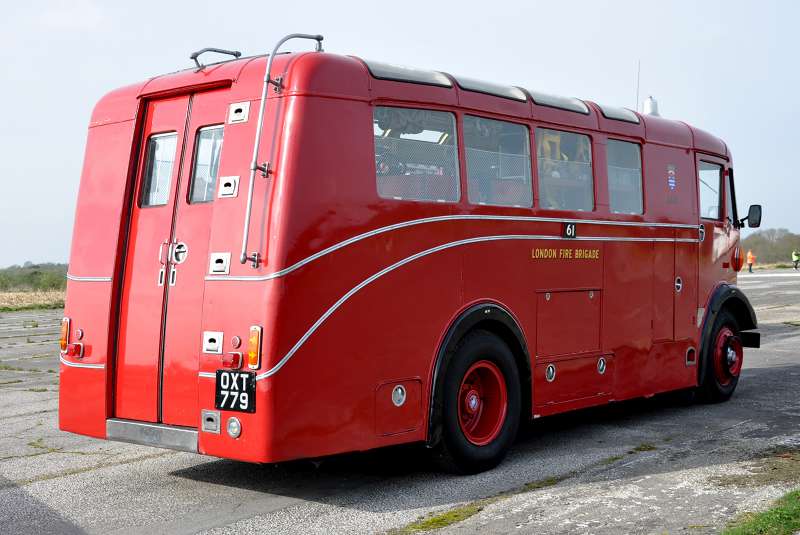
London Fire Brigade
Here are two views of OXT 779, yet another Maudslay Regent III, but built as a control room in 1954. She has Merryweather bodywork, and we see her at Wisley. The front view was taken on 5 April 2009 and the rear view was taken on 11 April 2010. By 1954, wouldn't the Maudslay branding be on its way out?
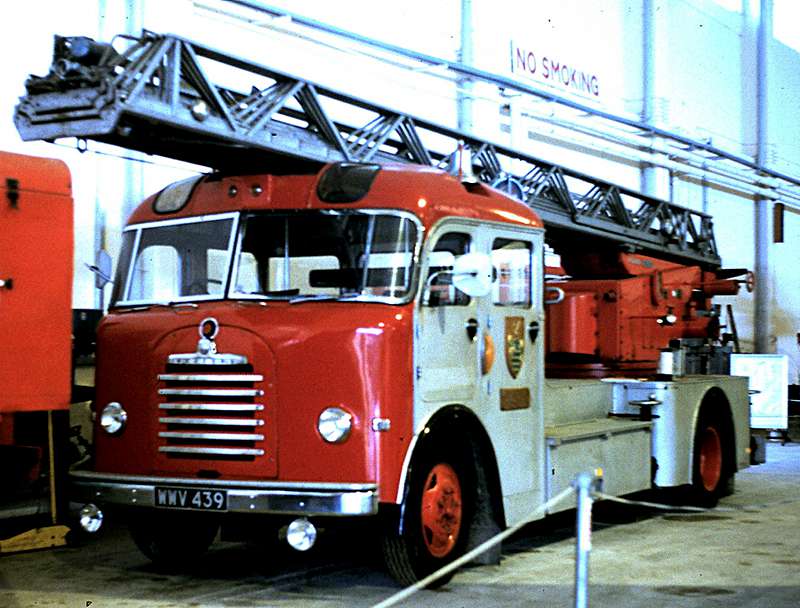
Wiltshire Fire Brigade
WWV 439 is a Bedford SB3, not that you would recognise her as such. Most Bedford fire engines of this era were on the TK lorry chassis, so what caused Wiltshire to buy a coach chassis? We see her in one of the hangars at the Science Museum Annexe, Wroughton, on 12 July 1986, on one of those too-rare open days.
Pete Davies
01/2016
30/01/16 - 12:43
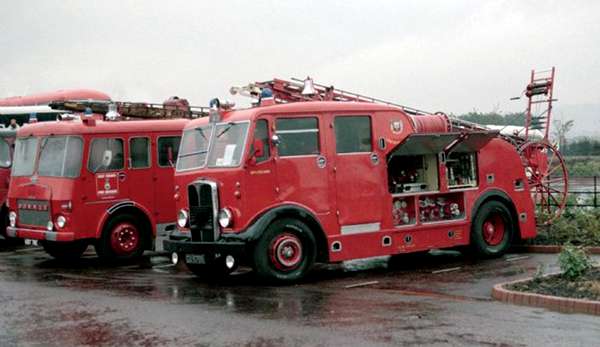
A couple of years ago, I posted the above photo on this site of CU 5705. New to South Shields in 1947, its a beautifully preserved 1947 Merryweather fire engine built on an AEC Regent III chassis. I last saw it at the Seaburn vintage vehicle rally in 2014 'I couldn't get to last years' but as far as I'm aware, its still alive and well. The Regent bus chassis had a lower center of gravity than its commercial vehicle equivalent, and this made it better suited to use as a fire engine.
Ronnie Hoye
30/01/16 - 18:35
Thank you for your response, Ronnie. I had not made the connection between the lower centre of gravity of a bus chassis and the quite considerable use under fire engines - what you say certainly makes sense. It could go a long way to explaining the Wiltshire SB! I hope that others will send in any views they might have of similar unusual bodies built on bus chassis.
Pete Davies
30/01/16 - 18:35
One reason Wiltshire might have chosen an SB over a TK for a fire engine is the more forward engine position might make for a better crew cab. This is why the smaller TK was not modified as a small bus but instead Duple Plaxton and later Caetano converted the J2 to forward control.
Stephen Allcroft
31/01/16 - 11:12
I suspect you are right Stephen. I may be wrong - I often am - but Lancashire had a large number of Bedford fire engines which I always understood to be the TK.
Pete Davies
31/01/16 - 13:02
Yes, Pete, the TK was used as a fire appliance chassis. See this link
Roger Cox
01/02/16 - 08:48
Thanks for that Roger
Pete Davies
01/02/16 - 16:32
I didn't mean to imply the TK wasn't used as a fire appliance it was one of the market leaders in that application; Vauxhall even supplying some with Rolls-Royce B series petrol engines; I was just suggesting why an SB was chosen by Wiltshire, another reason might have been the longer wheelbase.
(AFAIR) Fireman Sam's engine was based on a TK.
Stephen Allcroft
10/02/16 - 07:07
Re the LTE Leyland Titan truck and the suggestion that an RM could have been used as the basis for these - the RM did not have a 'front to back' chassis but separate front and rear assemblies, known colloquially as wheelbarrows - the front with the axle & engine, the back with the axle & diff, plus the gearbox strung somewhere between.
I'm sure that it was much easier, and cheaper, to plonk a truck body onto a proper chassis than try to engineer something special.
Roger Ingle
11/02/16 - 06:17
It is a shame that none of the Bristol LH and LHL vans operated by Wilson's ('Silver Cross') Prams of Guiseley, Yorkshire have been preservesd, as they were such unusual vehicles. Wilson's operated fourteen of them over the years. The early ones were bodied by Marsden, with later ones being built by Vanplan.
Brendan Smith
11/02/16 - 09:00
Thank you Roger I, for your explanation of 'why not the RM?'. I had not realised - or had forgotten - that the RM was, for the want of a better expression, integral or semi-integral. That would explain the ease with which a former BEA Routemaster (KGJ 603D) has been extended into an RMF as "RME1".
Yes, Brendan, I'd agree with you about the Silver Cross pram transporters. I have vague recollections of seeing a photograph of one of that fleet, somewhere, but I'm not entirely sure it was on the LH chassis, though it probably was. It is indeed a pity that none survive.
Pete Davies
12/02/16 - 05:25
At Glasgow Vintage Vehicle Trust we have an Albion Viking VK41/ Sparshatt Pantechnicon owned by the Biggar Albion Foundation under restoration: it can be seen at this link.
Although the garage is much cleaner than pictured the van is being reframed so is much less complete.
Stephen Allcroft
12/02/16 - 05:26
The 'Silver Cross' LH's weren't the only large vans on underfloor chassis, I recall the trade press of the day reporting the 'Shore Porters Society' of Aberdeen using Leopards with pantechnicon bodies as long distance furniture vans and of course there also were the now historic racing car transporters on Royal Tiger chassis'
Andrew Charles
12/02/16 - 12:12
Thanks Stephen and Andrew for the information on other PSV-based pantechnicons. The Albion Viking looks the part, and it is good to hear that it is undergoing restoration. As far as I am aware the Shore Porters Society is still with us. I remember seeing their vehicles from time to time outside Harrogate Theatre, but this is a long time ago. The livery was, from memory dark blue and red, not unlike the Blood Transfusion Service vans, or striking a PSV note, Accrington Corporation's buses.
Brendan Smith
13/02/16 - 05:23
It's good to see that the Albion Viking pantechnicon is to be restored. There are countless flats, dropsides and tractor/trailer outfits preserved, but no sizeable vans like that one.
Also, am I right in thinking that some of those Regent III/Merryweather fire appliances were fitted with Meadows petrol engines - does anybody know ?
John Stringer
14/02/16 - 05:53
Yes, John, the Meadows 6PC630 engine was the petrol version of the 6DC630 diesel. It was offered by Merryweather as an option in the Regent III chassis for fire appliance duties. These special Regent fire engine chassis, some of normal control layout, were assembled at the Maudslay plant in Alcester, and several went for export.
Roger Cox
17/02/16 - 16:31
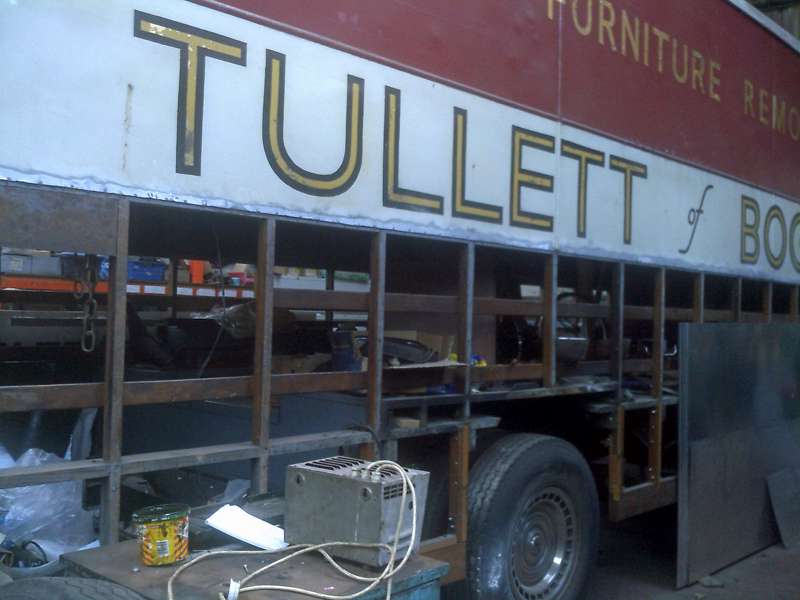
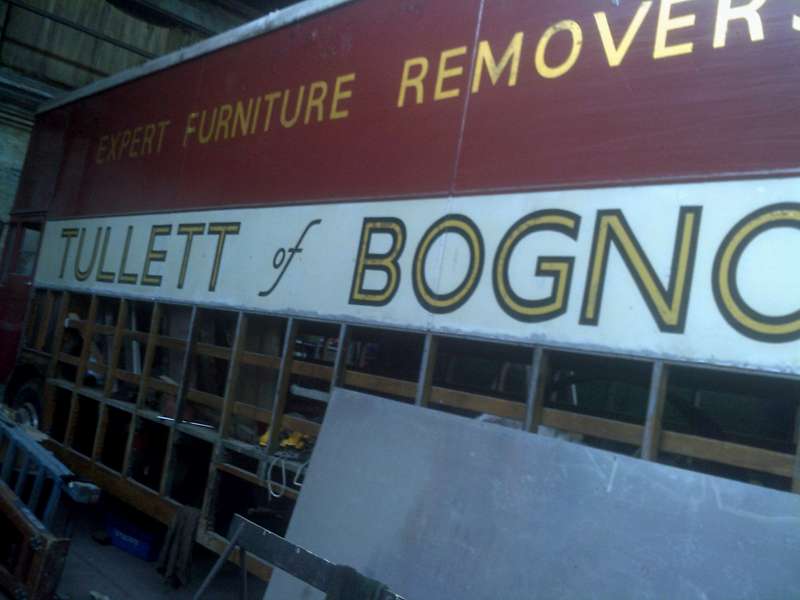
Please find two pictures of the Albion Viking Pantechnicon taken last Sunday. It looks like the reframing is complete.
Stephen Allcroft
18/02/16 - 05:49
Thanks for that, Stephen. It looks as if fitting panels and repaint are not far off!
Pete Davies
13/03/16 - 09:31
I have found a reference to the first view in my set, the Firemaster. Apparently, it was new to Darlington, hence the registration, and it is reputed to be the sole survivor of the type.
Pete Davies
14/12/16 - 16:39
YGG 209 is another Leyland Firemaster in Preservation, currently at the riverside museum in Glasgow. Here's a link to a picture of it at Kelvin Hall: www.fire-engine-photos.com/picture/
Glasgow were the main customer for the Firemaster.
Stephen Allcroft
Comments regarding the above are more than welcome please get in touch via the 'Contact Page' or by email at obp-admin@nwframpton.com
If you have any bus related photographs that you would like to appear in a gallery on this website please send them to me by email at obp-admin@nwframpton.com
Quick links to - Galleries - Comments - Contact - Home
All rights to the design and layout of this website are reserved
Old Bus Photos from Saturday 25th April 2009 to Wednesday 3rd January 2024